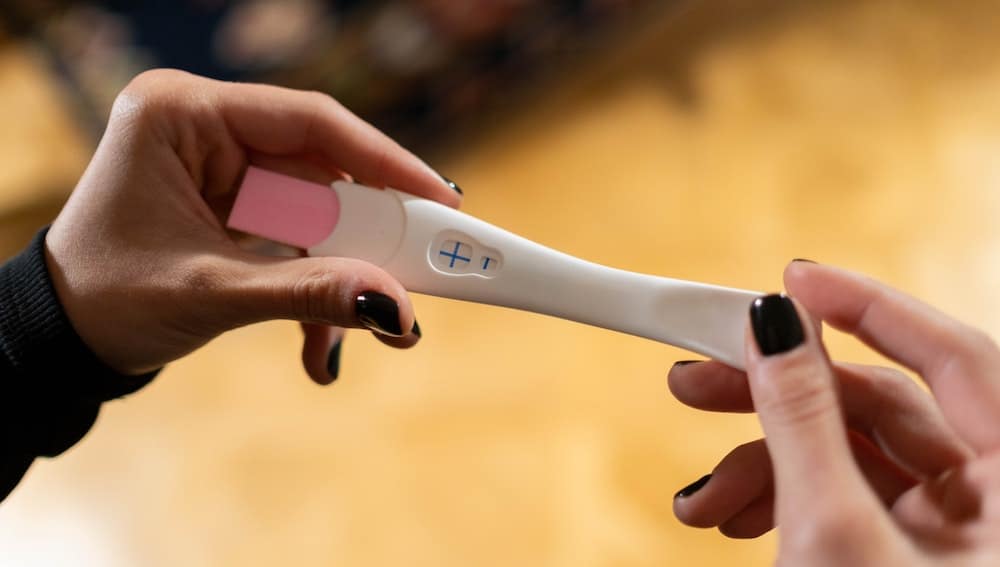UTIs, or urinary tract infections, are a common condition that can affect people of all ages and genders. They occur when bacteria enter the urinary tract and cause inflammation and infection.
UTIs can be uncomfortable and even painful, but they are usually treatable with antibiotics. However, for pregnant women, UTIs can be more serious and may require closer monitoring and treatment.
Pregnancy can cause changes in a woman’s body that make her more susceptible to UTIs. As the uterus expands, it can put pressure on the bladder and urinary tract, making it more difficult to fully empty the bladder and increasing the risk of infection.
Additionally, hormonal changes during pregnancy can affect the urinary tract and make it easier for bacteria to grow. UTIs during pregnancy can lead to complications such as preterm labor and low birth weight, so it is important to diagnose and treat them promptly.
Key Takeaways
- UTIs are a common condition that can affect people of all ages and genders.
- Pregnancy can increase the risk of UTIs and lead to complications if left untreated.
- Early diagnosis and treatment of UTIs during pregnancy is important for the health of both the mother and baby.
Related: Can a yeast infection affect a pregnancy test
Understanding UTIs
Urinary tract infections (UTIs) are bacterial infections that affect the bladder, urethra, kidneys, or ureters.
They are more common in women than men, and can cause a range of symptoms including pain, burning, and pressure when urinating, frequent urination, and the presence of blood in the urine.
UTIs occur when bacteria enter the urinary tract and multiply, causing inflammation and discomfort. They can be caused by a variety of factors, including poor hygiene, sexual activity, and certain medical conditions.
Symptoms of a UTI can vary depending on the location and severity of the infection. Some people may experience back pain, chills, fever, or nausea in addition to the more common symptoms.
Diagnosis of a UTI typically involves a urine culture, which can identify the type of bacteria causing the infection and help guide treatment. Treatment usually involves antibiotics and plenty of fluids to flush out the bacteria.
Prevention of UTIs involves maintaining good hygiene, drinking plenty of water, and avoiding irritating substances such as perfumed products or harsh soaps. Women may also benefit from urinating after sexual activity to help flush out any bacteria that may have entered the urinary tract.
Overall, UTIs can be uncomfortable and even painful, but they are usually treatable with antibiotics and plenty of fluids. If left untreated, however, they can lead to more serious infections and complications.
Pregnancy and UTIs
UTIs, or urinary tract infections, are a common bacterial infection that can affect anyone, including pregnant women. During pregnancy, the risk of developing a UTI increases due to hormonal changes that affect the urinary tract. UTIs can be harmful to both the mother and the baby if left untreated.
If a pregnant woman develops a UTI, it is important to seek treatment promptly. UTIs can lead to preterm labor and low birth weight if left untreated. Additionally, UTIs can cause contractions, which can be dangerous for the baby and lead to preterm labor.
Pregnancy tests work by detecting the hormone human chorionic gonadotropin (hCG), which is produced by the placenta after implantation. UTIs do not affect the levels of hCG in the body, so a UTI should not affect the results of a pregnancy test.
However, it is important to note that other medications or medical conditions may affect the accuracy of a pregnancy test.
In the first trimester of pregnancy, UTIs are more common and can be more serious. Pregnant women should be aware of the symptoms of a UTI, which include painful urination, frequent urination, and lower abdominal pain. If these symptoms occur, it is important to seek medical attention promptly.
In conclusion, UTIs can be harmful to both the mother and the baby during pregnancy. Pregnant women should be aware of the symptoms of a UTI and seek prompt treatment if they occur.
UTIs should not affect the results of a pregnancy test, but other factors may affect the accuracy of the test.
How UTIs Can Affect Pregnancy Tests
UTIs or Urinary Tract Infections are a common occurrence in women during pregnancy. UTIs can cause a range of symptoms such as frequent urination, burning sensation, and pain during urination. UTIs can also affect the accuracy of a pregnancy test, leading to false negative results.
Pregnancy tests work by detecting the presence of the hormone hCG (human chorionic gonadotropin) in urine.
However, UTIs can dilute the urine and affect the concentration of hCG in the urine sample. This can lead to false negative results, where the pregnancy test shows negative even when the woman is pregnant.
The accuracy of a home pregnancy test depends on a variety of factors, including the time of day the test is taken. Morning urine is considered the most reliable for pregnancy tests as it is more concentrated.
However, if a woman has a UTI, even morning urine may be diluted, affecting the accuracy of the test.
It is important to note that not all UTIs will affect the accuracy of a pregnancy test. If the UTI is mild and does not affect the concentration of hCG in the urine, the pregnancy test will still be accurate.
However, if the UTI is severe and affects the concentration of hCG in the urine, it can lead to false negative results.
In conclusion, UTIs can affect the accuracy of pregnancy tests, leading to false negative results. If a woman suspects she may be pregnant but receives a negative pregnancy test result, she should consult her healthcare provider.
The healthcare provider can perform a more accurate pregnancy test and determine if a UTI is affecting the results.
Treatment and Prevention of UTIs
UTIs can be treated with antibiotics prescribed by a doctor. The type of antibiotic prescribed will depend on the severity of the infection and the patient’s medical history.
Common antibiotics used to treat UTIs include amoxicillin, nitrofurantoin, trimethoprim-sulfamethoxazole, cephalosporins, erythromycin, and penicillin.
In some cases, hospitalization may be necessary for treatment of severe UTIs. This is especially true for pregnant women, as untreated UTIs can lead to complications such as preterm labor and low birth weight.
Prevention of UTIs can be achieved through various methods. Drinking plenty of fluids, especially water, can help flush out bacteria from the urinary tract.
Cranberry juice and supplements may also be helpful in preventing UTIs, although the evidence for their effectiveness is limited.
Maintaining good hygiene practices can also help prevent UTIs. Wiping from front to back after using the toilet, avoiding douching, wearing cotton underwear, and using mild soaps can all help reduce the risk of developing a UTI.
In summary, UTIs can be effectively treated with antibiotics, and prevention can be achieved through good hygiene practices and lifestyle changes.
Pregnant women should seek medical attention promptly if they suspect they have a UTI, as untreated infections can lead to complications.
Complications of UTIs in Pregnancy
UTIs in pregnancy can lead to several complications, especially if left untreated. UTIs can become severe and progress to kidney infections or pyelonephritis, which can cause serious health problems for both the mother and the baby.
In severe cases, a kidney infection can cause miscarriage, premature birth, or low birth weight. It can also lead to anemia, a condition in which the body lacks enough red blood cells to carry oxygen to the body’s tissues.
UTIs can affect the ureters, which are the tubes that carry urine from the kidneys to the bladder. If the ureters become infected, it can cause complications in the urinary tract, leading to intravenous pyelography (IVP) or other diagnostic tests.
In some rare cases, UTIs can lead to sepsis, a life-threatening condition that occurs when the body’s immune system responds to an infection by attacking its own organs and tissues.
There are also risks associated with certain types of bacteria that can cause UTIs, such as Group B Streptococcus and Escherichia coli. These bacteria can cause kidney infections, which can be difficult to treat and may require hospitalization.
It is important for pregnant women to seek medical attention if they experience any symptoms of a UTI, such as frequent urination, burning during urination, or pain in the lower abdomen. UTIs can be treated with antibiotics, but prompt treatment is essential to prevent complications.
Pregnant women should also attend regular prenatal check-ups to monitor for any signs of infections. They can visit a clinic or healthcare provider to get checked and treated if necessary.
Symptoms and Diagnosis of UTIs in Pregnancy
UTIs are common in pregnant women, with up to 10% of expectant mothers experiencing a UTI during their pregnancy. The symptoms of a UTI in pregnancy are similar to those of a UTI in non-pregnant women, but they can be more severe and may require prompt medical attention.
Symptoms of a UTI in pregnancy may include a burning feeling during urination, increased frequency of urination, urgency to urinate, lower abdominal cramps, tenderness in the lower abdomen, and pain during sexual intercourse. Some women may also experience nausea and vomiting.
If a pregnant woman experiences any of these symptoms, it is important to see a doctor for diagnosis and treatment.
A doctor may perform a urine culture to determine the type of bacteria causing the infection. This test involves collecting a sample of urine and sending it to a laboratory for analysis.
Prompt diagnosis and treatment of a UTI in pregnancy is important to prevent complications such as preterm labor and low birth weight. Antibiotics are commonly used to treat UTIs in pregnancy, but it is important to consult with a doctor before taking any medication during pregnancy.
In summary, pregnant women should be aware of the symptoms of a UTI and seek medical attention if they experience any of these symptoms. A doctor can perform a urine culture to diagnose a UTI and prescribe appropriate treatment to prevent complications.
Sex and UTIs
Sexual intercourse can increase the risk of urinary tract infections (UTIs) in women due to the proximity of the urethra to the vagina and anus.
The friction and pressure during sex can introduce bacteria into the urethra, leading to an infection. Women who are pregnant are especially vulnerable to UTIs due to hormonal changes that can affect the urinary tract.
It is important for pregnant women to practice good hygiene and urinate before and after sexual intercourse to help flush out any bacteria that may have entered the urethra.
Using a water-based lubricant during sex can also help reduce friction and the risk of UTIs.
If a pregnant woman suspects she has a UTI, she should seek medical attention promptly. Left untreated, UTIs can lead to complications such as preterm labor and delivery.
A healthcare provider can perform a urine test to confirm the presence of a UTI and prescribe antibiotics to treat the infection.
In summary, sexual intercourse can increase the risk of UTIs in pregnant women due to the proximity of the urethra to the vagina and anus.
Good hygiene practices and seeking prompt medical attention if a UTI is suspected can help reduce the risk of complications during pregnancy.
Dietary Considerations for UTIs
When it comes to treating UTIs, dietary considerations can play an important role in both preventing and managing symptoms. While there is no magic cure for UTIs, certain foods and drinks can help reduce the risk of infection and promote healing.
One of the most important things to consider is hydration. Drinking plenty of water and other fluids can help flush bacteria out of the urinary tract and prevent infections from taking hold.
In general, it is recommended that individuals with UTIs aim to drink at least 8-10 glasses of water per day, though this may vary depending on individual needs and activity levels.
Cranberry juice is another popular remedy for UTIs, and for good reason. Studies have shown that cranberry juice can help prevent bacteria from adhering to the walls of the urinary tract, making it harder for infections to take hold.
However, it is important to note that while cranberry juice can be helpful in preventing UTIs, it is not a cure-all and should not be relied upon as the sole treatment for active infections.
When it comes to sugar and glucose, it is generally best to avoid these as much as possible when dealing with UTIs. Bacteria thrive on sugar, so consuming too much can actually make infections worse.
Additionally, high levels of glucose in the urine can indicate the presence of a more serious infection, such as a kidney infection, so it is important to monitor blood sugar levels closely if you have diabetes.
Overall, the key to managing UTIs through diet is to focus on hydration and avoiding foods and drinks that can exacerbate symptoms.
By staying hydrated and consuming a balanced, healthy diet, individuals can help reduce their risk of UTIs and promote healing if an infection does occur.
Frequently Asked Questions
Can a UTI cause a false negative pregnancy test?
No, a UTI (urinary tract infection) cannot cause a false negative pregnancy test. However, if a woman has a UTI and is pregnant, it may be difficult to get an accurate result due to the presence of bacteria in the urine. It is recommended to wait until the infection is treated before taking a pregnancy test.
What can cause a false positive pregnancy test?
Several factors can cause a false positive pregnancy test, including certain medications, medical conditions, and user error. Some medications that contain hCG (human chorionic gonadotropin), such as fertility drugs, can cause a false positive result.
Medical conditions such as ovarian tumors and certain types of cancer can also produce hCG and cause a false positive test. User error, such as not following the instructions correctly, can also lead to a false positive result.
Can a yeast infection cause a false positive pregnancy test?
No, a yeast infection cannot cause a false positive pregnancy test. Yeast infections are caused by an overgrowth of yeast in the vagina, which has no effect on the accuracy of a pregnancy test.
What medications can cause a false positive pregnancy test?
Medications that contain hCG, such as fertility drugs, can cause a false positive pregnancy test. Other medications, such as antipsychotics and tranquilizers, can also interfere with the accuracy of a pregnancy test.
Can a UTI affect your period?
A UTI can cause changes in a woman’s menstrual cycle, including irregular periods and spotting. However, it is important to note that a UTI does not directly affect the timing of a woman’s period.
What can affect a urine pregnancy test?
Several factors can affect the accuracy of a urine pregnancy test, including the timing of the test, the type of test used, and user error. It is important to follow the instructions carefully and wait until the appropriate time to take the test for the most accurate results.
Related: Is bright yellow urine a sign of pregnancy

Iesha is a loving mother of 2 beautiful children. She’s an active parent who enjoys indoor and outdoor adventures with her family. Her mission is to share practical and realistic parenting advice to help the parenting community becoming stronger.




